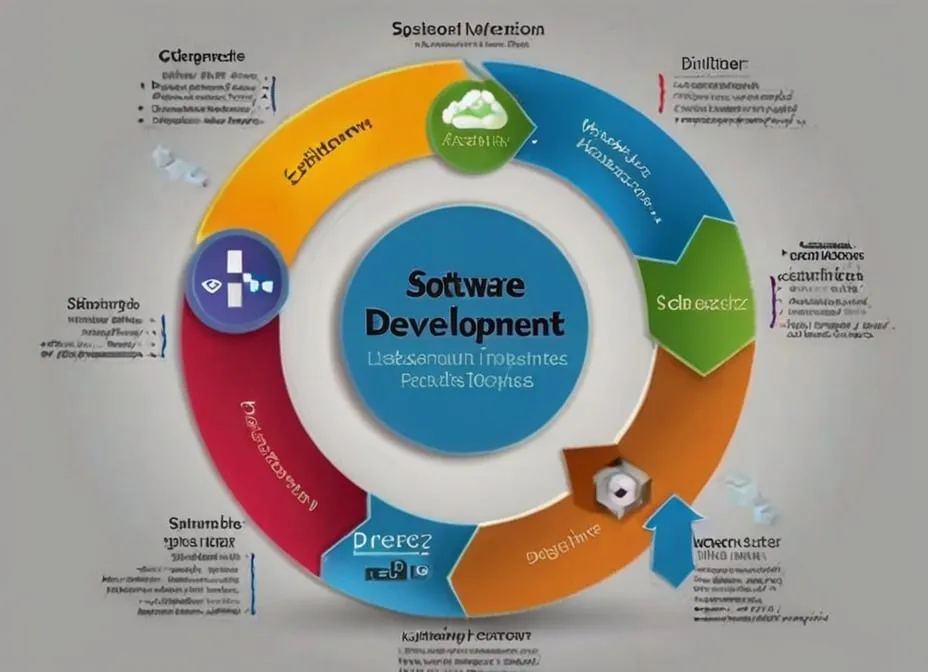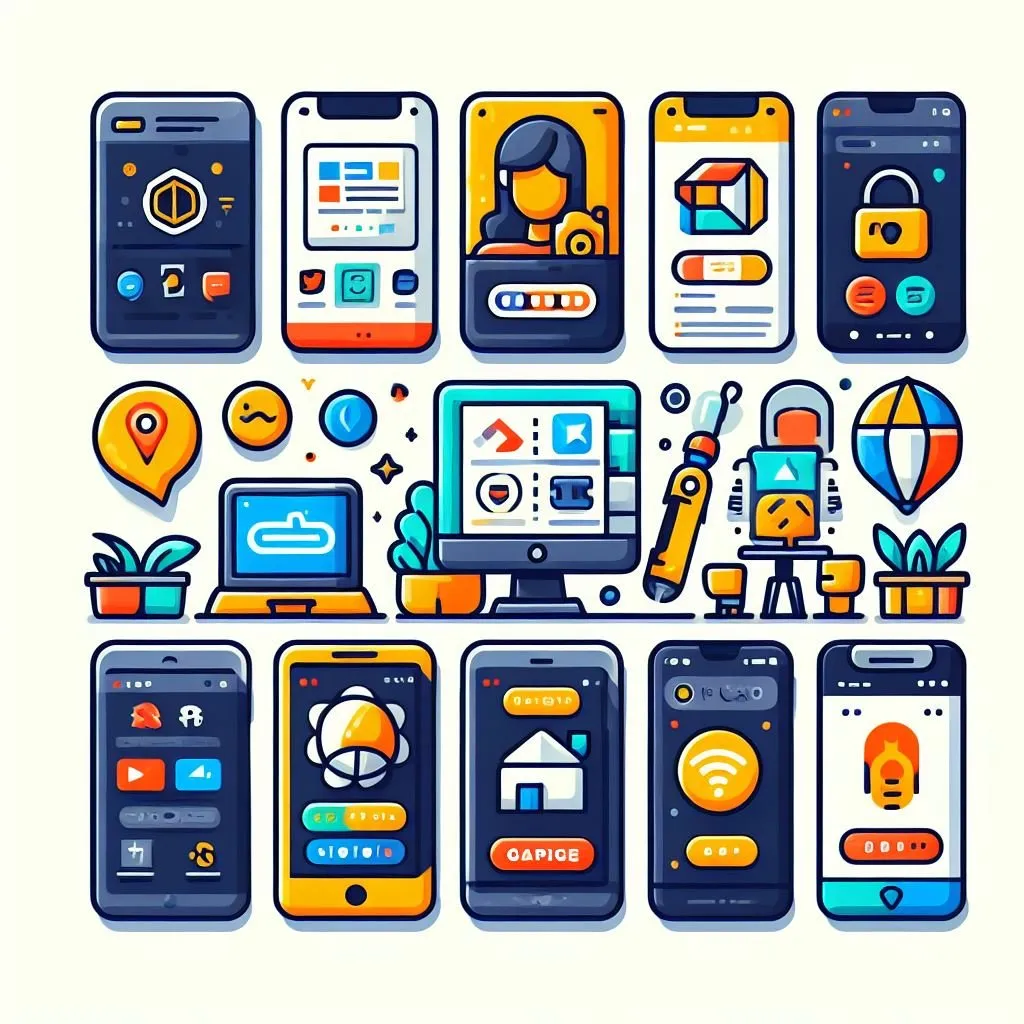Leveraging AI for Content Creation & Marketing: Future-Proof Your Strategy

Understanding AI's Role in Content Creation & Marketing
In the ever-evolving digital landscape, artificial intelligence (AI) has emerged as a game-changer for content creation and marketing. As businesses strive to stay ahead of the curve, leveraging AI offers a powerful opportunity to work smarter, not harder. This article delves into the world of AI and its transformative impact on content and marketing strategies.
What is Artificial Intelligence (AI)?
Artificial Intelligence (AI) is a broad field of computer science that focuses on developing systems and machines capable of performing tasks that typically require human intelligence. At its core, AI involves programming computers to learn from data, recognize patterns, and make decisions or predictions based on that learning.
The concept of AI has been around since the mid-20th century, but it has gained significant momentum in recent years due to advancements in computing power, data availability, and machine learning algorithms. Today, AI is being applied across various industries, from healthcare and finance to transportation and entertainment.
AI's Impact on Content Creation
Content creation is a crucial aspect of digital marketing, and AI has the potential to revolutionize this process. By automating repetitive tasks, personalizing content, and generating new content, AI can streamline the content creation process and enhance its effectiveness.
One of the most significant impacts of AI on content creation is automation. AI-powered tools can assist with tasks such as content ideation, research, and even writing. Natural Language Generation (NLG) technology can generate human-like text based on data inputs, enabling businesses to create content at scale while maintaining quality and consistency.
Moreover, AI can personalize content based on individual preferences, behavior, and context. By analyzing data about users' interests, location, and browsing history, AI algorithms can tailor content to resonate better with specific audiences, improving engagement and conversion rates.
AI's Impact on Marketing
Marketing has always been about understanding customer needs and delivering targeted messaging. AI has the potential to take this to new heights by leveraging predictive analytics, targeted advertising, and conversational experiences.
Predictive analytics powered by AI can provide invaluable insights into consumer behavior, preferences, and purchasing patterns. By analyzing large datasets, AI can identify trends and make data-driven predictions, enabling businesses to optimize their marketing strategies and campaigns for maximum impact.
Targeted advertising is another area where AI is making significant strides. AI algorithms can analyze vast amounts of data to identify the most receptive audiences for specific messages, ensuring that marketing efforts are highly targeted and effective.
Additionally, AI-powered chatbots and virtual assistants are transforming the way businesses interact with customers. These conversational AI technologies can provide personalized support, answer queries, and even guide customers through the sales funnel, delivering a seamless and engaging experience.
Benefits of Leveraging AI
By embracing AI in content creation and marketing, businesses can unlock a range of benefits, including:
- Increased efficiency and productivity: AI can automate time-consuming tasks, freeing up valuable human resources to focus on more strategic and creative endeavors.
- Enhanced customer experience: AI-powered personalization and conversational experiences can deliver highly tailored and engaging interactions, improving customer satisfaction and loyalty.
- Data-driven decision-making: AI's ability to analyze vast amounts of data and uncover insights can inform better decision-making, enabling businesses to stay ahead of market trends and customer demands.
While AI offers numerous advantages, it's crucial to strike a balance between leveraging its capabilities and maintaining human oversight and control. Ethical considerations, such as transparency, accountability, and responsible AI development, should be at the forefront of any AI implementation.
AI-Powered Content Creation Tools
As businesses seek to leverage AI for content creation, a variety of powerful tools have emerged to streamline the process and enhance content quality and relevance. Let's explore some of the key AI-powered content creation tools.

Natural Language Generation (NLG)
Natural Language Generation (NLG) technology is at the forefront of AI-powered content creation. NLG tools can generate human-like text based on data inputs, enabling businesses to create content at scale while maintaining quality and consistency.
One of the most significant advantages of NLG is its ability to automate content writing. Tools like Narrative Science, Automated Insights, and Arria NLG can generate narratives, reports, and articles from structured data, saving businesses valuable time and resources.
NLG tools can also personalize content based on individual preferences and context. By analyzing user data, these tools can tailor the tone, language, and messaging to resonate better with specific audiences, enhancing engagement and conversion rates.
Examples of popular NLG tools include:
- Narrative Science: A leading NLG platform that generates narratives and reports from data across various industries.
- Automated Insights: An NLG platform that specializes in creating content for media, marketing, and business applications.
- Arria NLG: An NLG solution that transforms data into insightful narratives for industries like finance, healthcare, and manufacturing.
Content Optimization and Analysis
AI-powered content optimization and analysis tools can help businesses create more effective and search-engine-friendly content. These tools leverage machine learning algorithms to analyze content, identify opportunities for improvement, and provide data-driven recommendations.
One of the primary applications of these tools is SEO optimization. By analyzing search engine algorithms, user behavior, and competitor content, AI-powered SEO tools can suggest optimal keywords, content structure, and formatting to improve search rankings and visibility.
Additionally, content analysis tools can evaluate the quality and performance of existing content, providing insights into factors like readability, engagement, and conversions. These insights can inform content strategy and help businesses refine their approach for better results.
Examples of popular content optimization and analysis tools include:
- Clearscope: An AI-powered content optimization tool that helps create SEO-friendly and high-ranking content.
- MarketMuse: A content optimization platform that leverages AI to analyze and improve content quality and relevance.
- Frase: An AI-powered content optimization tool that helps create high-quality, SEO-friendly content and supports content strategy development.
Content Curation and Recommendation
In the age of information overload, content curation and recommendation tools powered by AI can help businesses and individuals surface the most relevant and engaging content. These tools leverage machine learning algorithms to analyze user preferences, behavior, and content characteristics to deliver personalized recommendations.
AI-powered content curation tools can automatically identify, aggregate, and organize content from various sources based on specific topics or interests. This can save businesses valuable time and resources while ensuring they stay up-to-date with the latest industry trends and insights.
Content recommendation engines, on the other hand, can suggest personalized content to users based on their browsing history, preferences, and engagement patterns. This not only enhances the user experience but can also improve content consumption and engagement metrics.
Examples of popular content curation and recommendation tools include:
- Curata: A content curation and marketing platform that uses AI to discover, curate, and share relevant content.
- Outbrain: An AI-powered content discovery and recommendation platform that serves personalized content recommendations to users.
- Taboola: A content recommendation engine that uses machine learning to suggest relevant content to users across various websites and platforms.
Ethical Considerations
As AI-powered content creation tools become more prevalent, it's crucial to address ethical considerations to ensure responsible and transparent use of these technologies. Some key ethical considerations include:
- Transparency and disclosure: It's important to be transparent about the use of AI in content creation and disclose when content has been generated or assisted by AI tools. This helps maintain trust and credibility with audiences.
- Human oversight and control: While AI can automate certain aspects of content creation, it's essential to maintain human oversight and control to ensure accuracy, quality, and alignment with brand values and messaging.
- Potential risks and challenges: The use of AI in content creation can raise concerns about issues such as bias, privacy, and security. Businesses should be aware of these risks and implement appropriate safeguards and governance measures.
By addressing these ethical considerations, businesses can leverage the power of AI-powered content creation tools while maintaining transparency, accountability, and responsible practices.
AI-Powered Marketing Strategies
AI has the potential to revolutionize marketing strategies by providing data-driven insights, enabling personalized experiences, and automating processes. Let's explore some of the key AI-powered marketing strategies that businesses can leverage.
Predictive Analytics and Consumer Insights
Predictive analytics powered by AI can provide invaluable insights into consumer behavior, preferences, and purchasing patterns. By analyzing large datasets from various sources, such as website interactions, social media engagement, and purchase history, AI algorithms can identify trends and make data-driven predictions.
One of the primary applications of predictive analytics is behavioral targeting. AI algorithms can analyze user data to segment audiences based on their behaviors, interests, and demographics. This enables businesses to deliver highly targeted and personalized marketing campaigns, improving engagement and conversion rates.
Predictive analytics can also inform product development, pricing strategies, and inventory management by forecasting demand and anticipating market trends. This data-driven approach can help businesses stay ahead of the curve and make informed decisions that drive growth and profitability.
Examples of AI-powered predictive analytics and consumer insights solutions include:
- Google Cloud AI: A suite of AI tools and services, including predictive analytics and customer insights solutions for various industries.
- SAS Advanced Analytics: A comprehensive platform for predictive analytics, machine learning, and data mining, enabling businesses to uncover insights and make data-driven decisions.
- Adobe Analytics: An AI-powered analytics solution that provides insights into customer behavior, preferences, and journeys across multiple channels.
Targeted Advertising and Campaigns
Targeted advertising and campaigns are at the heart of effective marketing strategies, and AI is playing a pivotal role in optimizing these efforts. By leveraging machine learning algorithms and vast amounts of data, AI can identify the most receptive audiences for specific messages, ensuring that marketing efforts are highly targeted and effective.
One of the key applications of AI in targeted advertising is programmatic advertising. AI algorithms can analyze user data, contextual information, and real-time bidding data to automatically place ads on the most relevant platforms and channels. This ensures that ads are served to the right audiences at the right time, improving ad performance and return on investment (ROI).
AI can also optimize advertising campaigns by continuously analyzing data and adjusting targeting, messaging, and bidding strategies in real time. This dynamic optimization ensures that campaigns remain effective and efficient, minimizing waste and maximizing impact.
Additionally, AI-powered ad retargeting strategies can help businesses re-engage with users who have previously interacted with their brand or shown interest in their products or services. By analyzing user behavior and preferences, AI algorithms can deliver personalized messaging and offers, increasing the chances of conversion.
Examples of AI-powered advertising and campaign solutions include:
- Google Marketing Platform: A suite of AI-powered tools for campaign management, analytics, and attribution, enabling businesses to optimize their marketing efforts across multiple channels.
- Adobe Advertising Cloud: An AI-powered advertising platform that leverages machine learning to optimize ad targeting, delivery, and measurement across various channels.
- Acquisio: An AI-driven marketing intelligence and campaign optimization platform that helps businesses streamline and optimize their digital marketing efforts.
Chatbots and Virtual Assistants
Chatbots and virtual assistants powered by AI are transforming the way businesses interact with customers. These conversational AI technologies can provide personalized support, answer queries, and even guide customers through the sales funnel, delivering a seamless and engaging experience.
Chatbots can be integrated into various channels, such as websites, messaging apps, and social media platforms, enabling businesses to provide 24/7 customer support and assistance. AI-powered natural language processing (NLP) and machine learning algorithms allow chatbots to understand and respond to human language naturally and contextually, improving the overall customer experience.
Virtual assistants, on the other hand, can assist customers with more complex tasks, such as product recommendations, appointment scheduling, and even making purchases. By leveraging AI's ability to understand user intent and preferences, virtual assistants can provide personalized and relevant assistance, fostering customer loyalty and satisfaction.
In addition to customer support and engagement, chatbots, and virtual assistants can also play a role in lead generation and sales. By conversationally engaging with potential customers, these AI-powered solutions can qualify leads, provide product information, and even facilitate transactions, streamlining the sales process.
Examples of AI-powered chatbot and virtual assistant solutions include:
- Google Dialogflow: A conversational AI platform that enables businesses to build natural and intelligent chatbots and virtual agents.
- IBM Watson Assistant: An AI-powered virtual assistant that can understand and respond to natural language queries, enabling businesses to provide personalized customer support and engagement.
- Amazon Lex: A service for building conversational interfaces into applications using voice and text, allowing businesses to create and deploy chatbots and virtual assistants.
Ethical Considerations
While AI-powered marketing strategies offer numerous benefits, it's crucial to address ethical considerations to ensure responsible and transparent use of these technologies. Some key ethical considerations include:
- Data privacy and security: AI-powered marketing strategies often rely on collecting and analyzing large amounts of user data. It's essential to ensure that data privacy and security measures are in place to protect sensitive information and comply with relevant regulations.
- Responsible use of AI: AI algorithms can potentially perpetuate biases and discriminatory practices if not developed and deployed responsibly. Businesses should ensure that their AI systems are audited for fairness, accountability, and transparency.
- Transparency and accountability: Consumers have a right to know when AI is being used in marketing efforts, and businesses should be transparent about their AI practices. Additionally, there should be clear accountability measures in place to address any issues or concerns that may arise.
By addressing these ethical considerations, businesses can leverage the power of AI-powered marketing strategies while maintaining trust, transparency, and responsible practices.
Integrating AI into Your Content and Marketing Workflow
To truly harness the potential of AI in content creation and marketing, businesses need to strategically integrate AI technologies into their existing workflows. This integration process requires careful planning, execution, and continuous optimization.
Identifying Opportunities for AI Implementation
The first step in integrating AI into your content and marketing workflow is to identify opportunities for AI implementation. This involves assessing your current processes, identifying pain points and inefficiencies, and prioritizing areas where AI can provide the most significant impact.
Start by mapping out your existing content creation and marketing processes, including ideation, research, creation, optimization, distribution, and measurement. Identify the most time-consuming or resource-intensive tasks, as well as areas where human error or inconsistencies may occur.
Additionally, consider the challenges and goals specific to your business, such as improving content quality, increasing audience engagement, or enhancing personalization efforts. These insights will help you prioritize the areas where AI can provide the greatest value.
Building an AI-Powered Content Strategy
Once you've identified the opportunities for AI implementation, the next step is to build an AI-powered content strategy. This involves integrating AI technologies into various stages of the content creation process, from ideation and planning to optimization and distribution.
- Content planning and ideation: Leverage AI-powered tools to analyze data on user interests, search trends, and competitor content to identify content gaps and opportunities. Use natural language processing (NLP) and machine learning algorithms to generate content ideas and topics that align with your audience's needs and interests.
- Content creation and optimization: Incorporate natural language generation (NLG) tools to automate the content writing process, particularly for data-driven or repetitive content. Additionally, utilize AI-powered content optimization tools to analyze and improve content quality, readability, and search engine optimization (SEO) effectiveness.
- Content distribution and promotion: Use AI-powered content recommendation engines and personalization algorithms to deliver the right content to the right audience at the right time. Leverage AI-powered social media management and advertising tools to promote and distribute your content effectively across various channels.
Throughout the process, it's essential to maintain human oversight and control. While AI can automate and augment certain tasks, human creativity, strategic thinking, and quality control remain crucial for creating exceptional content that resonates with your audience.
Building an AI-Powered Marketing Strategy
Parallel to your content strategy, you should also develop an AI-powered marketing strategy. This involves integrating AI technologies into various aspects of your marketing efforts, from customer segmentation and targeting to campaign execution and optimization.
- Customer segmentation and targeting: Leverage AI-powered predictive analytics and consumer insights tools to segment your audience based on their behaviors, preferences, and demographics. Use machine learning algorithms to identify the most receptive and valuable customer segments for your products or services.
- Campaign planning and execution: Incorporate AI-powered advertising and campaign management platforms to optimize targeting, messaging, and bidding strategies. Use programmatic advertising and dynamic creative optimization (DCO) to deliver personalized and contextually relevant campaigns.
- Performance measurement and optimization: Utilize AI-powered analytics and attribution tools to track and measure the effectiveness of your marketing campaigns. Leverage machine learning algorithms to continuously optimize your campaigns based on real-time data and insights, maximizing your return on investment (ROI).
Additionally, integrate AI-powered chatbots and virtual assistants into your marketing efforts to provide personalized support, lead generation, and sales assistance. These conversational AI technologies can enhance the customer experience and streamline the sales funnel.
Overcoming Challenges and Barriers
Integrating AI into your content and marketing workflow may present various challenges and barriers. It's essential to anticipate and address these challenges proactively to ensure a smooth and successful implementation.
- Organizational culture and change management: Introducing AI technologies may require a cultural shift within your organization. It's crucial to gain buy-in from leadership and stakeholders, communicate the benefits and vision clearly, and provide training and support to ensure a successful transition.
- Upskilling and talent acquisition: As you integrate AI into your workflows, you may need to upskill your existing workforce or acquire new talent with expertise in AI technologies, data analysis, and digital marketing strategies. Invest in training programs and consider partnering with educational institutions or hiring specialized talent.
- Ethical and responsible AI implementation: Ensure that your AI implementation adheres to ethical principles, such as transparency, accountability, and fairness. Implement robust governance frameworks, data privacy and security measures, and continuous monitoring to mitigate potential risks and biases.
By proactively addressing these challenges and barriers, you can create a solid foundation for successfully integrating AI into your content and marketing workflows, unlocking new levels of efficiency, personalization, and data-driven decision-making.
Future of AI in Content Creation & Marketing
As AI technology continues to evolve and mature, its impact on content creation and marketing will become even more profound. The future holds exciting possibilities, as well as challenges that businesses must be prepared to navigate.
Emerging AI Technologies and Trends
The field of AI is rapidly advancing, and new technologies and trends are emerging that will shape the future of content creation and marketing. Some of the key developments to watch out for include:
- Advancements in natural language processing (NLP): NLP is a branch of AI that deals with understanding and generating human language. As NLP models become more sophisticated, we can expect to see even more accurate and fluent content generation, as well as improved language understanding capabilities for applications like chatbots and virtual assistants.
- Multimodal AI: While current AI technologies primarily focus on text-based content, the future will see the rise of multimodal AI systems that can generate and understand content across multiple modalities, such as text, images, audio, and video. This will open up new possibilities for creating rich, immersive, and personalized content experiences.
- AI-powered content personalization: As AI algorithms become better at understanding user preferences, behavior, and context, we can expect to see even more personalized and tailored content experiences. AI will enable businesses to create highly targeted and relevant content at scale, enhancing engagement and conversion rates.
The Role of Human Creativity
While AI will undoubtedly play a significant role in content creation and marketing, it's important to recognize that human creativity and oversight will remain essential. AI should be viewed as an augmentative technology that enhances and complements human capabilities, rather than replacing them entirely.
Human-AI collaboration will be crucial in the future, with AI assisting in data analysis, pattern recognition, and automating repetitive tasks, while humans provide strategic direction, creative ideation, and quality control. This synergy between human creativity and AI capabilities will drive innovation and enable businesses to create compelling and engaging content experiences.
Ethical and Regulatory Considerations
As AI technologies become more advanced and pervasive, ethical and regulatory considerations will play an increasingly important role. Responsible AI development and deployment will be paramount to ensure transparency, fairness, and accountability.
Businesses will need to implement robust AI governance frameworks and adhere to emerging regulations and guidelines surrounding data privacy, algorithmic bias, and ethical AI practices. Continuous monitoring and auditing of AI systems will be necessary to mitigate potential risks and ensure compliance.
Additionally, addressing the societal impacts of AI, such as job displacement and the need for reskilling and upskilling, will be crucial to ensure a smooth transition to an AI-driven future.
Looking Ahead
The future of AI in content creation and marketing is both exciting and challenging. As businesses embrace these technologies, they must be prepared to continuously adapt and learn. Staying ahead of the curve, fostering a culture of innovation, and embracing change will be essential for success in this rapidly evolving landscape.
By leveraging AI responsibly and in collaboration with human creativity, businesses can unlock new levels of efficiency, personalization, and data-driven decision-making. The future promises to be a transformative journey, and those who can effectively navigate it will gain a significant competitive advantage.
FAQs
1. Can AI completely replace human writers and marketers?
While AI can automate certain tasks and augment human capabilities, it is unlikely to completely replace human writers and marketers in the foreseeable future. Human creativity, strategic thinking, and emotional intelligence are still essential for creating compelling and engaging content, as well as developing effective marketing strategies. AI should be viewed as a tool to enhance and support human efforts, rather than a complete replacement.
2. How can businesses ensure the quality and accuracy of AI-generated content?
Maintaining human oversight and quality control is crucial when utilizing AI-generated content. Businesses should implement processes for reviewing and editing AI-generated content to ensure accuracy, consistency with brand voice and messaging, and overall quality. Additionally, providing clear guidelines and training data to AI systems can help improve the quality of the output.
3. What are the potential risks and challenges of using AI in content creation and marketing?
Some potential risks and challenges include data privacy and security concerns, algorithmic biases, lack of transparency, and the potential for job displacement. Businesses must address these concerns by implementing robust governance frameworks, adhering to ethical principles, and prioritizing responsible AI development and deployment.
4. How can businesses ensure their AI implementations are ethical and transparent?
Businesses should prioritize transparency by clearly disclosing when AI is involved in content creation or marketing efforts. They should also implement ethical AI principles, such as fairness, accountability, and privacy protection. Regular auditing and monitoring of AI systems for biases and potential issues is also crucial.
5. What skills and expertise will be required for businesses to successfully leverage AI in content creation and marketing?
Businesses will need to acquire expertise in areas such as data analysis, machine learning, natural language processing, and AI development. Additionally, skills in digital marketing, content strategy, and creative ideation will remain essential. Upskilling existing employees and hiring specialized talent may be necessary for successful AI integration.










